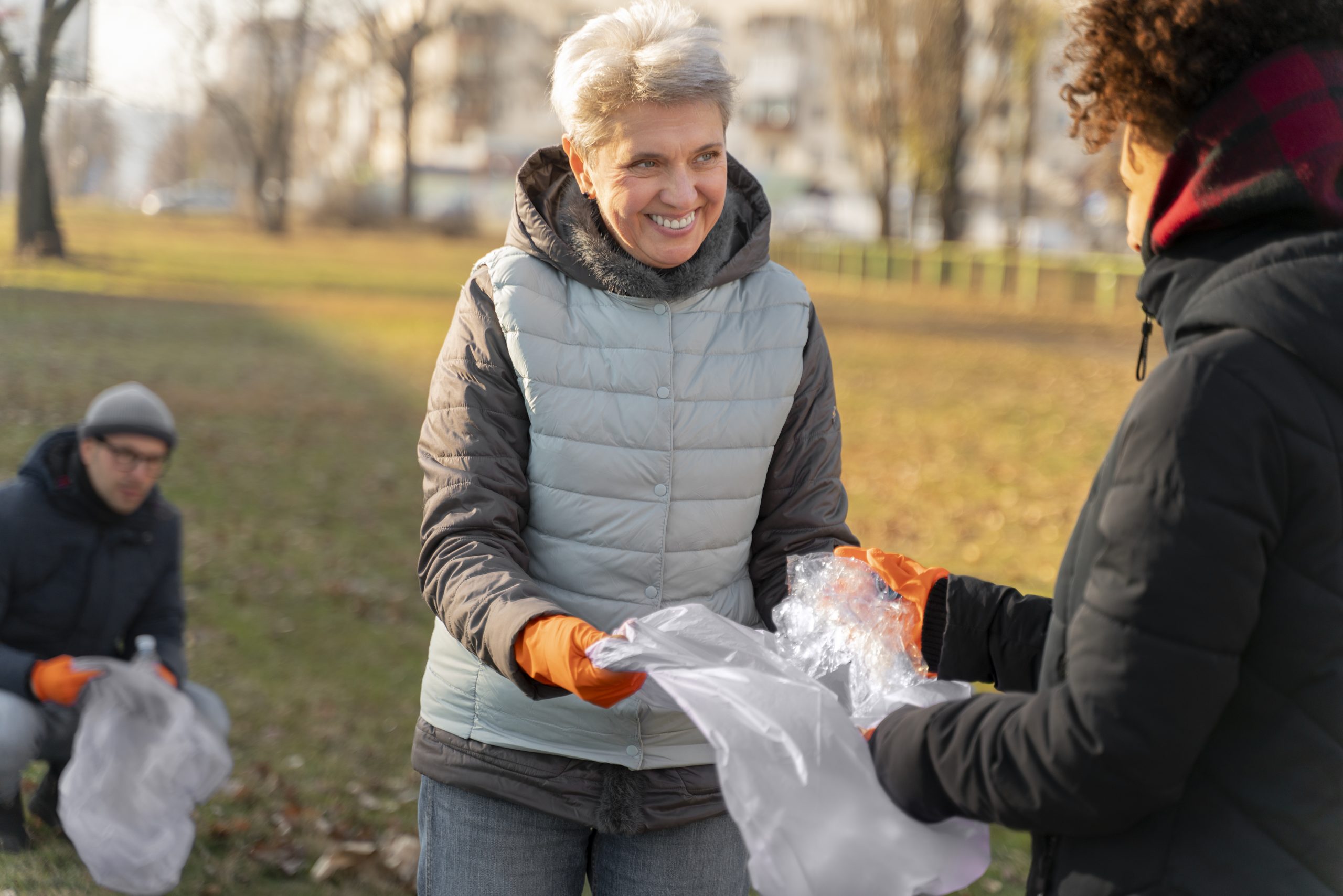

Volunteering in later life is connected with improved cognitive function, notably executive function and episodic memory. These are the findings of a new UC Davis Health study presented today (July 20) at the Alzheimer’s Association International Conference 2023 in Amsterdam.
“We hope these new data encourage individuals of all ages and backgrounds to engage in local volunteering — not only to benefit their communities, but potentially their own cognitive and brain health,” said Donna McCullough, Alzheimer’s Association chief mission and field operations officer.
Volunteering for educational, religious, health-related, or other philanthropic groups allows elderly people to be more physically active, boost social connection, and give cognitive stimulation that may protect the brain. However, there has been a paucity of research on the link between volunteering and cognitive function, particularly in large, heterogeneous groups.
Yi Lor, a UC Davis epidemiology doctorate student, and Rachel Whitmer, the study’s primary investigator, investigated volunteering practices across a varied group of 2,476 older persons. The Kaiser Healthy Aging and Diverse Life Experiences Study (KHANDLE) and the Study of Healthy Aging in African Americans (STAR) participants.
The participants in the study were 48% Black, 20% white, 17% Asian, and 14% Latino, with an average age of 74. A total of 1,167 participants (43%) reported volunteering in the previous year.
Volunteering, according to the researchers, was associated with higher baseline results on measures of executive function and verbal episodic memory. Even after controlling for age, gender, education, wealth, practice effects, and interview style (phone versus in-person), this remained true.
Those who volunteered frequently had the highest levels of executive function.
“Volunteering may be important for better cognition in late life and could serve as a simple intervention in all older adults to protect against risk for Alzheimer’s disease and associated dementias,” Lor said. “Our next steps are to examine whether volunteering is protective against cognitive impairment, and how physical and mental health may impact this relationship.”
Volunteering was also related with a trend toward decreased cognitive decline over a 1.2-year follow-up period, but this association was not statistically significant.
“You’re not in control of your family history or age — you can’t turn back the clock. But you are in control of how you spend your day and life,” Whitmer said. “Volunteering is about keeping your brain active. It’s also about socializing, which keeps you engaged and happy, and potentially lowers stress.”
more recommended stories
 Red Blood Cells Improve Glucose Tolerance Under Hypoxia
Red Blood Cells Improve Glucose Tolerance Under HypoxiaKey Takeaways for Clinicians Chronic hypoxia.
 Pediatric Crohn’s Disease Microbial Signature Identified
Pediatric Crohn’s Disease Microbial Signature IdentifiedKey Points at a Glance NYU.
 High-Fat Diets Cause Damage to Metabolic Health
High-Fat Diets Cause Damage to Metabolic HealthKey Points Takeaways High-fat and ketogenic.
 Can Too Many Antioxidants Harm Future Offspring?
Can Too Many Antioxidants Harm Future Offspring?Key Takeaways High-dose antioxidant supplementation in.
 Human Antibody Drug Response Prediction Gets an Upgrade
Human Antibody Drug Response Prediction Gets an UpgradeKey Takeaways A new humanized antibody.
 Dietary Melatonin Linked to Depression Risk: New Study
Dietary Melatonin Linked to Depression Risk: New StudyKey Summary Cross-sectional analysis of 8,320.
 Type 2 Diabetes Risk Identified by Blood Metabolites
Type 2 Diabetes Risk Identified by Blood MetabolitesKey Takeaways (Quick Summary) Researchers identified.
 Microglia Neuroinflammation in Binge Drinking
Microglia Neuroinflammation in Binge DrinkingKey Takeaways (Quick Summary for HCPs).
 Durvalumab in Small Cell Lung Cancer: Survival vs Cost
Durvalumab in Small Cell Lung Cancer: Survival vs CostKey Points at a Glance Durvalumab.
 Rising Chagas Parasite Detected in Borderland Kissing Bugs
Rising Chagas Parasite Detected in Borderland Kissing BugsKey Takeaways (At a Glance) Infection.

Leave a Comment